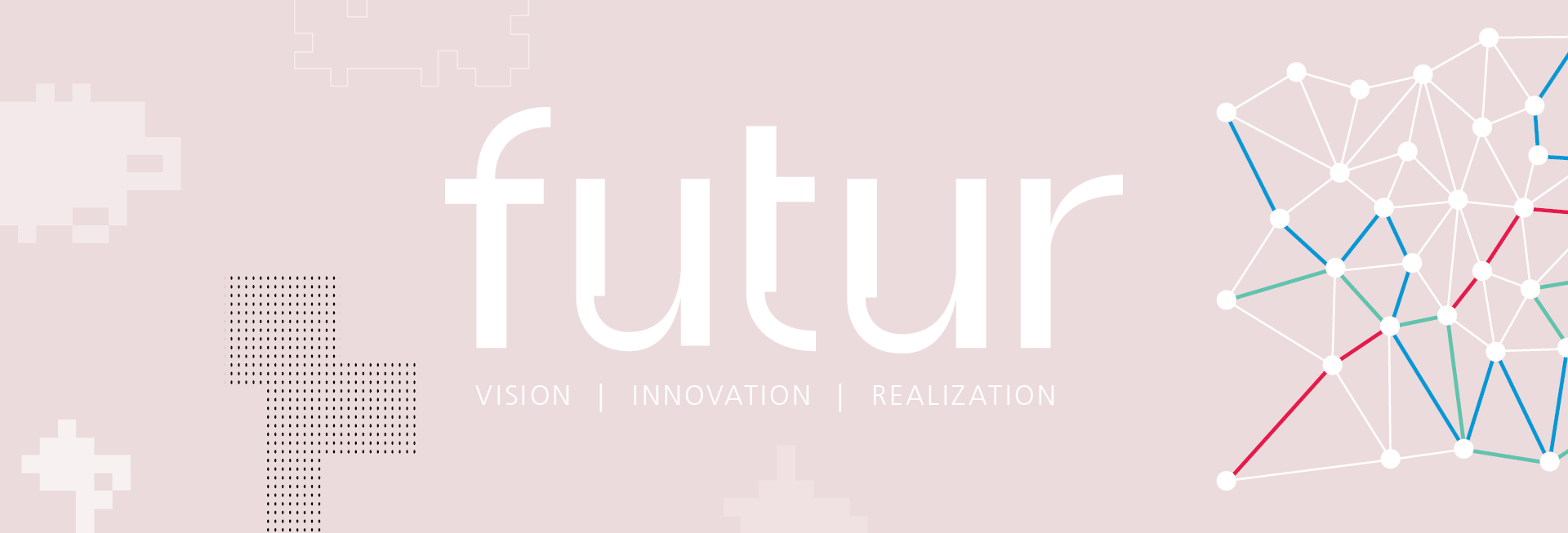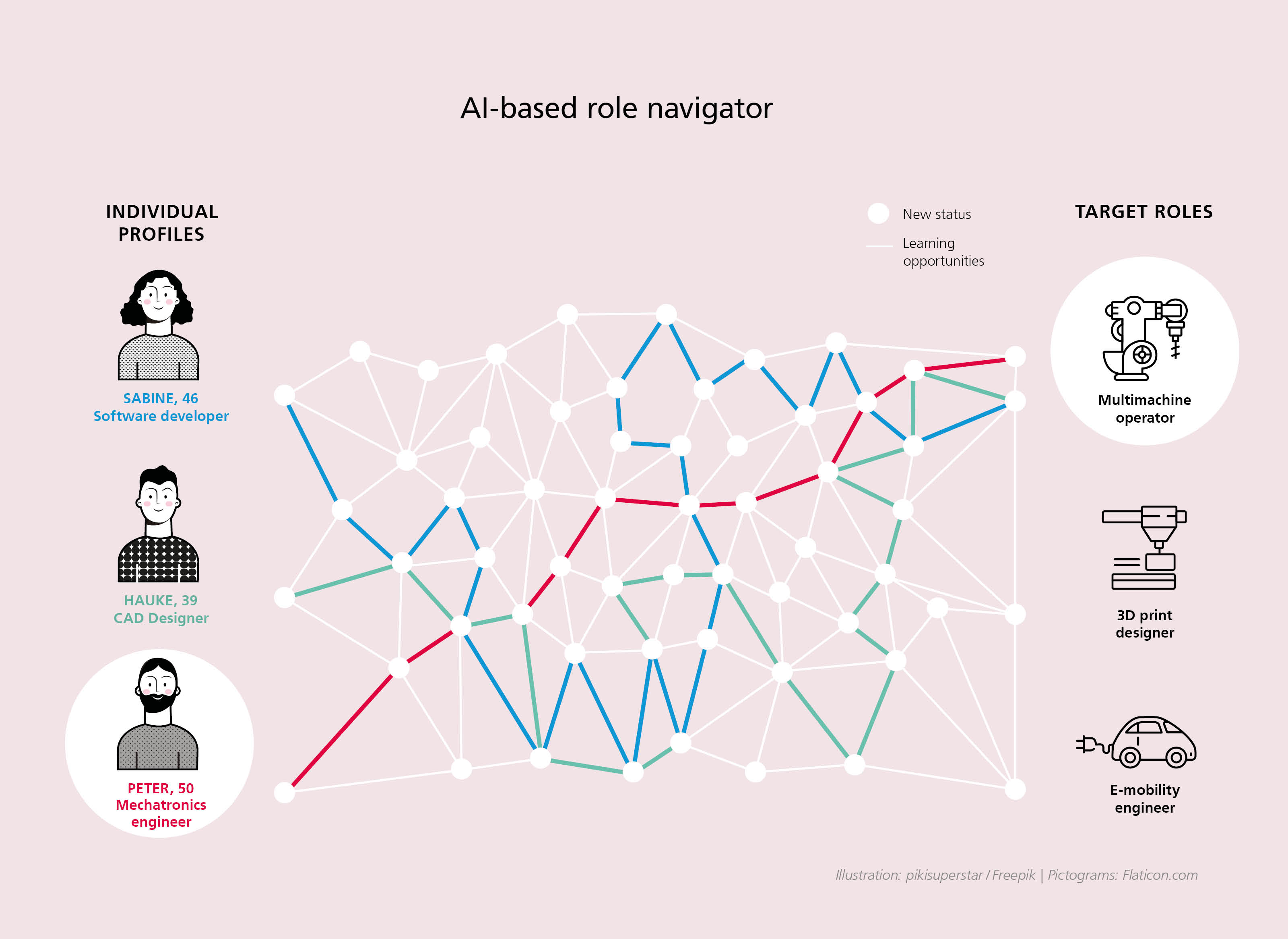Transforming Job Profiles with Algorithms
Digital transformation means more than just selecting digital tools and processes and introducing them to a company. A successful digitalization strategy also involves training employees for new types of tasks in a digital, networked production system. But how do you decide which employees are best suited for which new roles? What further training do they need to acquire the necessary know-how for their new duties? And how can one find suitable learning opportunities in the scattered market of advanced vocational training?
Small and medium-sized enterprises (SMEs) in particular – the core target group of the KIRA Pro project – face major challenges when answering these questions. They rarely have sufficient resources to systematically manage skills. Many companies have not yet developed a mature strategic orientation with regard to digital transformation. This makes it difficult to evaluate and weigh up the specific areas in which expertise needs to be built up and expanded in the medium term.
KIRA Pro approaches the problem by assisting companies facing these decisions with the help of artificial intelligence. A »role navigator« is used to identify suitable offerings which serve the company’s goal out of a large number of advanced training courses. It can create an individual and industry-specific learning path for any particular employee.
Let us play this through using an example: Based on its transformation strategy, a company has determined that the job profile of the multi-machine operator will become more important in the future. The necessary expertise for this target role is to be cultivated among existing personnel. To this end, employees who pos-sess suitable prior knowledge are to be provided with targeted training. The existing qualifications of employees are fed into the role navigator. It then checks which training courses can take the various employees from the level of their current know-how and skills to the necessary qualification for the target role. A learning path is thus created for each employee with various tailored qualification modules that would, in total, make them suitable for the target role.
KIRA Pro generates learning paths with different training courses, which in total make you fit for a new role.
Since employees will have different levels of prior knowledge, the role navigator determines that the learning paths of the various colleagues would be very heterogeneous in terms of their length and complexity. This can be seen in the sample diagram: Sabine, a programmer, would have to complete a learning path with detours and side branches to qualify as a multi-machine operator. The mechatronics engineer Peter, on the other hand, could be trained for the target role along a straightforward learning path with significantly fewer stations.
Such matching between corporate strategy, existing competencies, and available training opportunities makes it easier to navigate the continuing education market and eliminates the need for users to develop manual search strategies. The algorithm that emerges in KIRA Pro will take into account preferences and the learning strategies of trainees when selecting offerings. For example, training courses, coaching, e-learning, or practical units can be incorporated. The project thus also takes into consideration the trend toward smaller learning units and new learning formats. Continuing education offerings sourced from various renowned learning partners are fed into the system. One future goal is the user-friendly integration of the 3000 professions and 12,000 skills of the European ESCO framework into the software.
The project brings together a consortium of training providers and SMEs with transformational ambitions. Peers Solutions GmbH combines HR expertise and further education with AI experience in the manufacturing sector. FBT Feinblechtechnik GmbH and Harms & Wende GmbH & Co. KG possess innovative strength and years of experience in mechanical engineering. In collaboration with providers of continuing education platforms, the Fraunhofer IPK project team aims to enable the industrial partners to devise strategies for operational transformation and expertise development and to implement them in the real world.
 Fraunhofer Institute for Production Systems and Design Technology
Fraunhofer Institute for Production Systems and Design Technology
